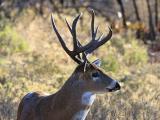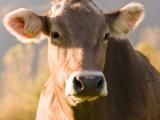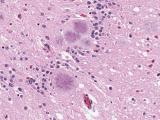May 4, 2007 (CIDRAP News) Canada recently confirmed its tenth case of bovine spongiform encephalopathy (BSE), or mad cow diseaseits second of 2007.
The case was found in a mature dairy cow from British Columbia, the Canadian Food Inspection Agency (CFIA) said in a May 2 statement. The disease was detected through Canada's ongoing surveillance program. The cow's carcass is under CFIA custody, and no part of it entered the human food or animal feed systems, the CFIA said.
CFIA officials determined that the 66-month-old animal was born after a 1997 feed ban, imposed by Canada and the United States to prevent the spread of BSE from contaminated protein from cattle and other ruminants in cattle feed. The preliminary investigation suggests that the animal was probably exposed to a very small amount of infective material, most likely during its first year of life.
"It is not unexpected to find BSE-infected animals born after the feed ban. This has proven to be the case in most other countries with targeted surveillance, similar to that in Canada," the CFIA report said.
The age of the animal falls within the age range of Canada's previous BSE cases and is consistent with the known incubation period of the disease, the CFIA report noted.
The CFIA said it would launch an epidemiologic investigation to identify the animal's herdmates at its time of birth and how it might have become infected.
On Jul 12, an extension of Canada's feed ban goes into effect. It bans potentially infective cattle parts (specified risk materials) to all animal feeds, not just feed for ruminants.

















